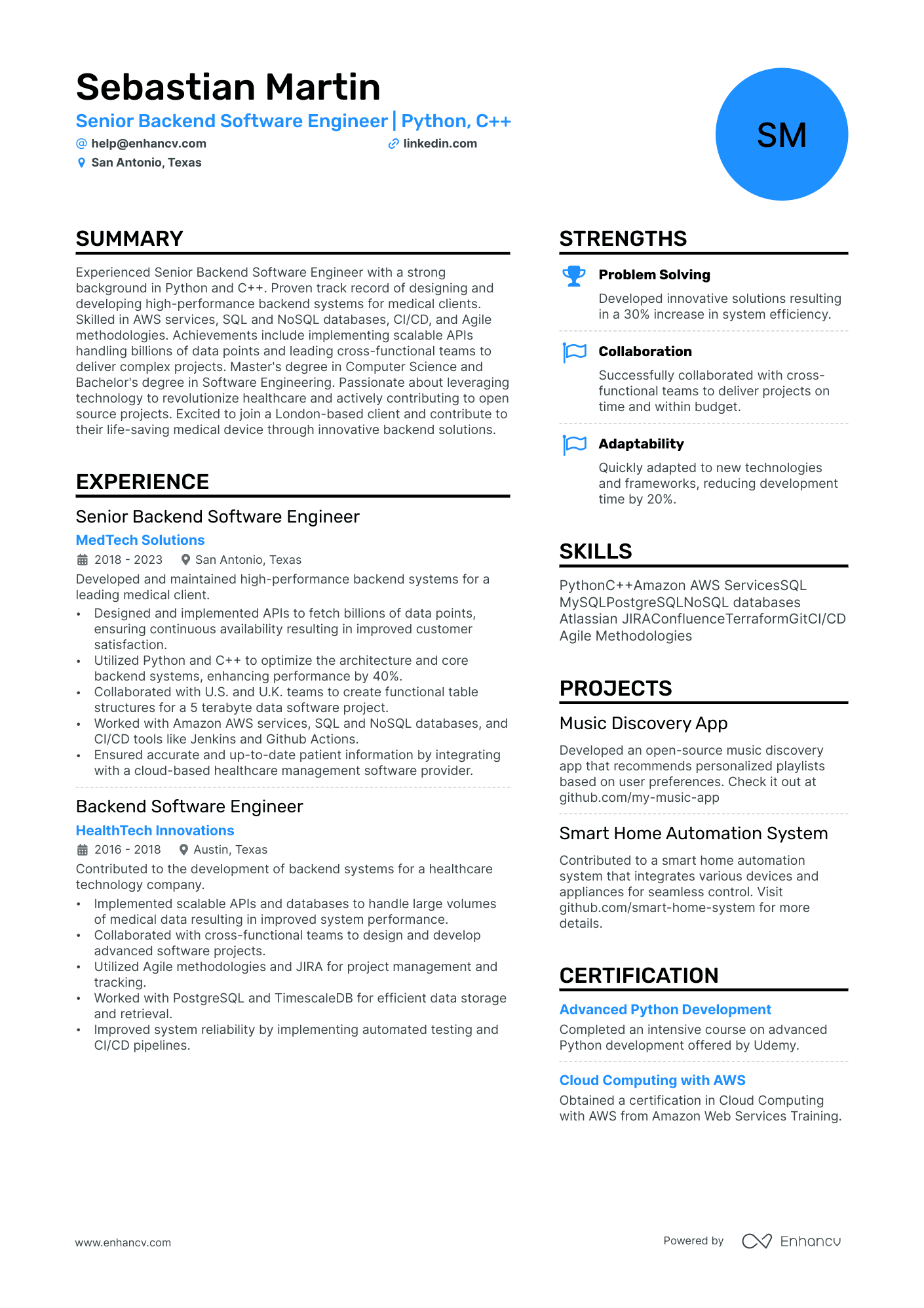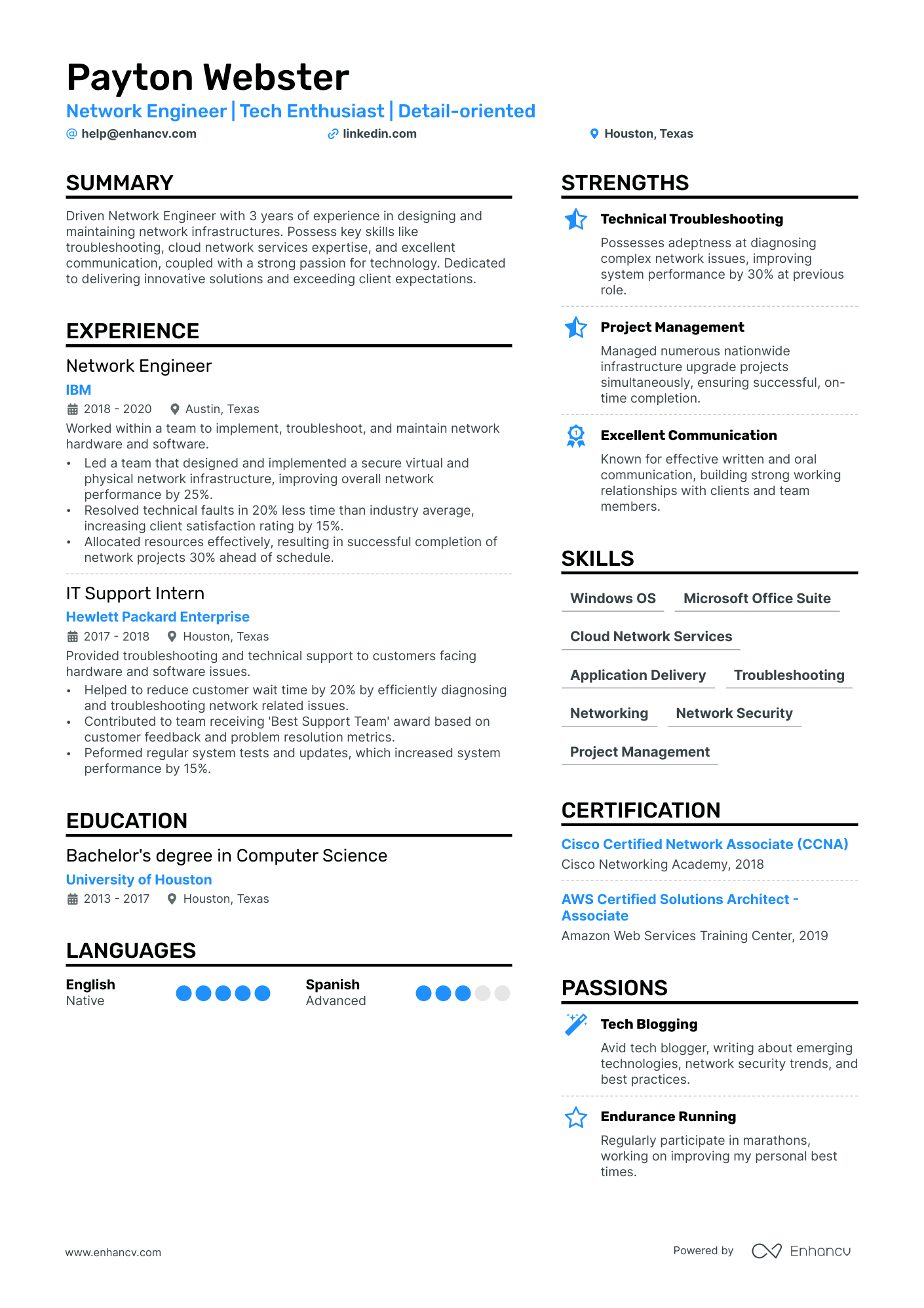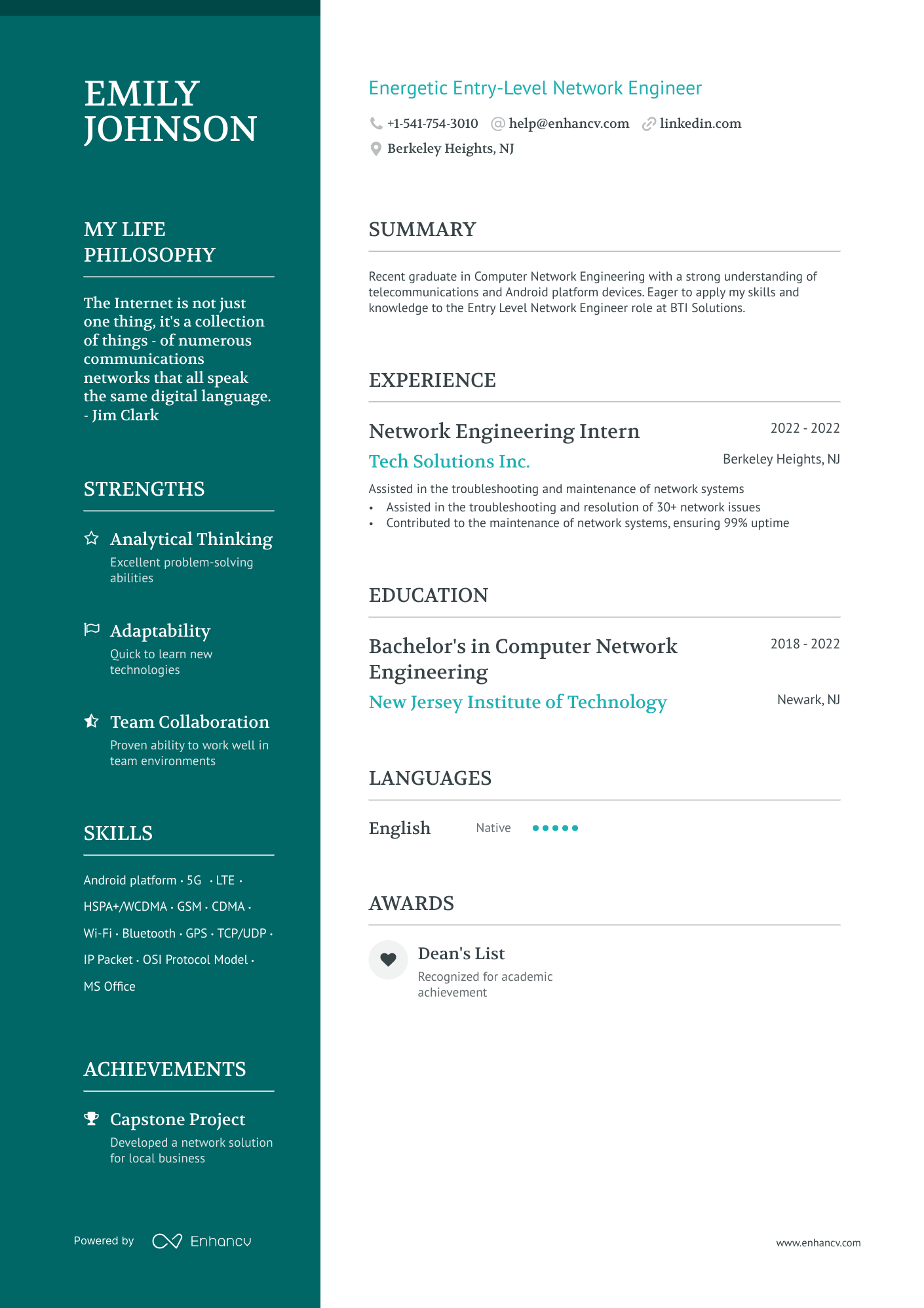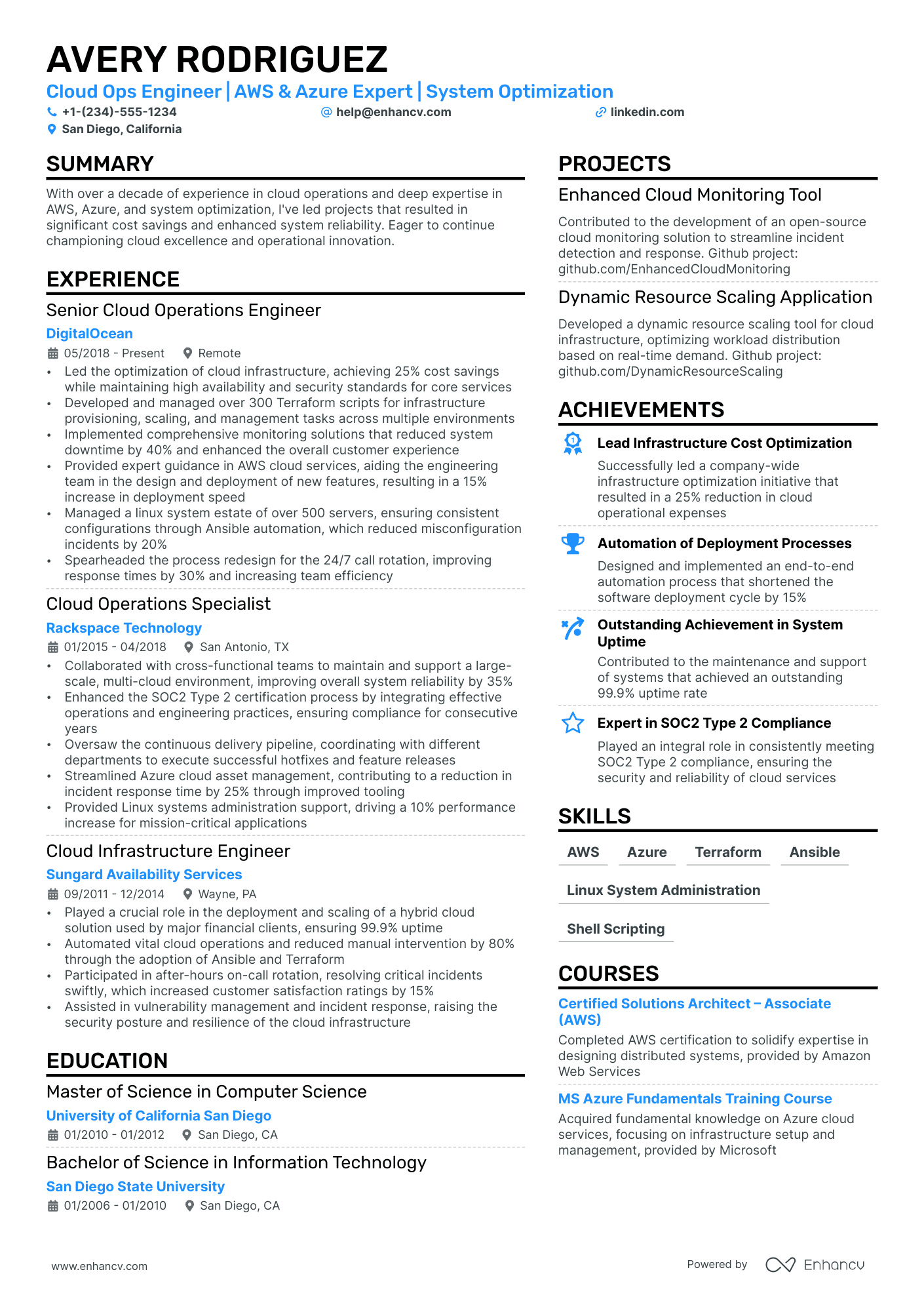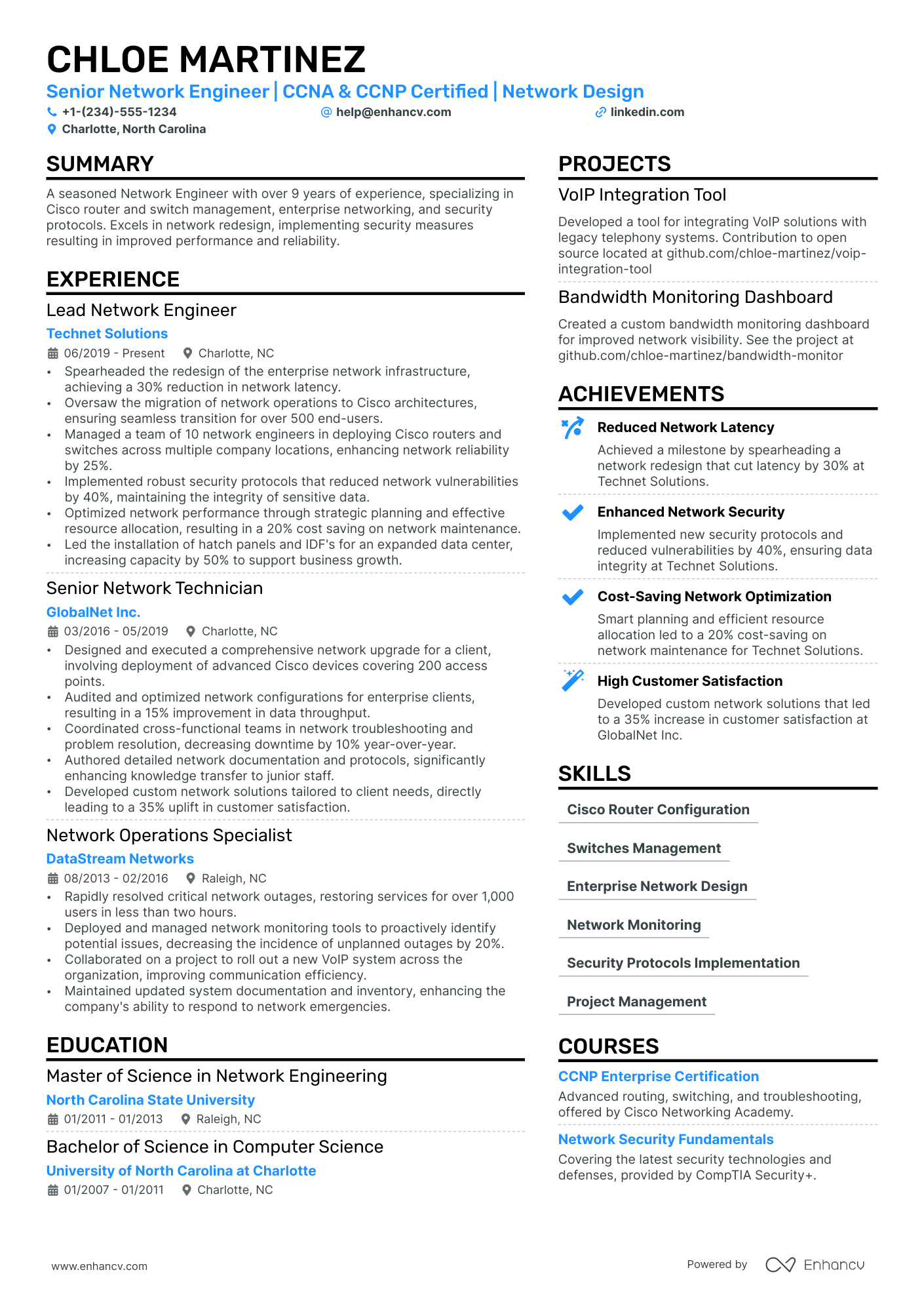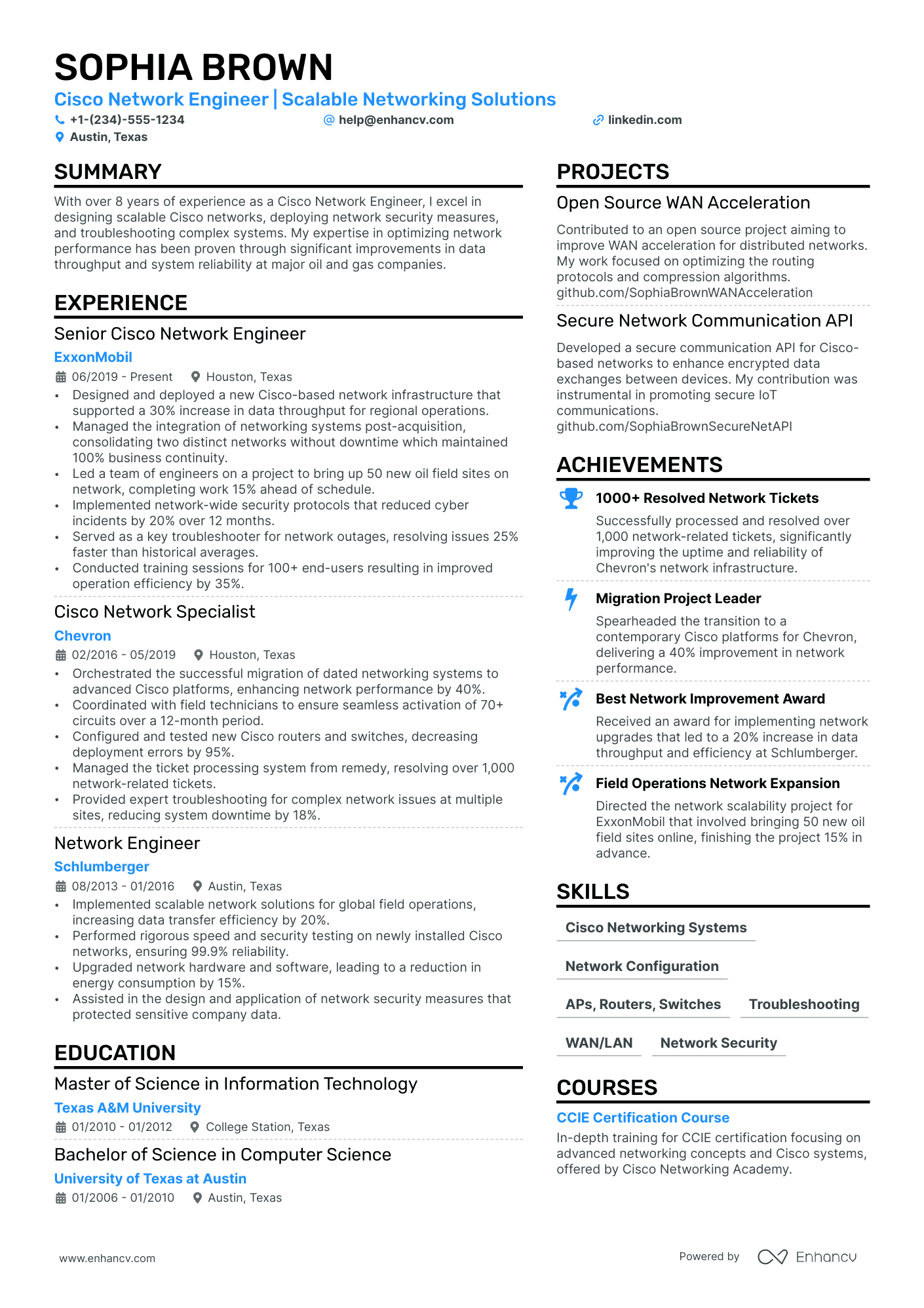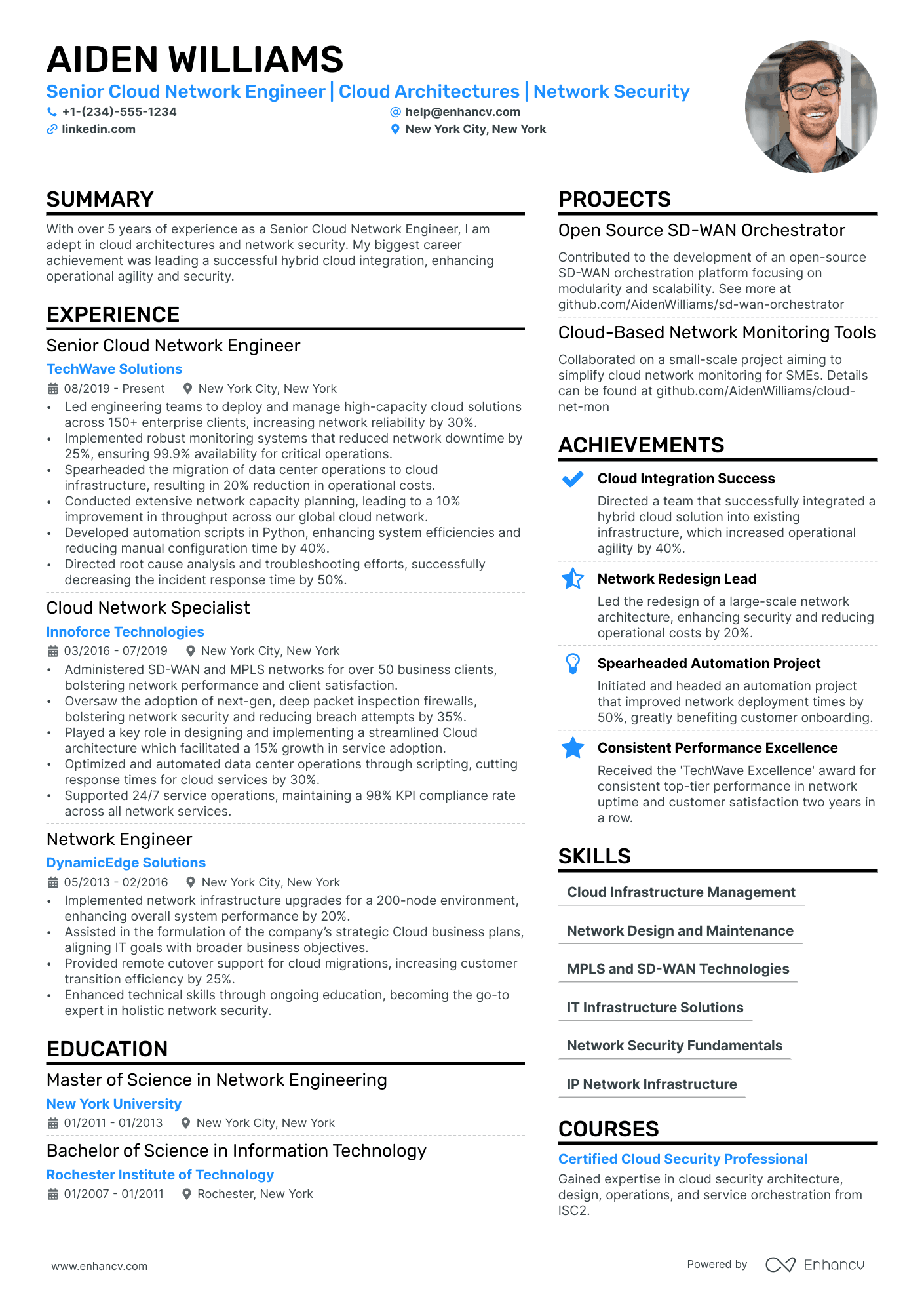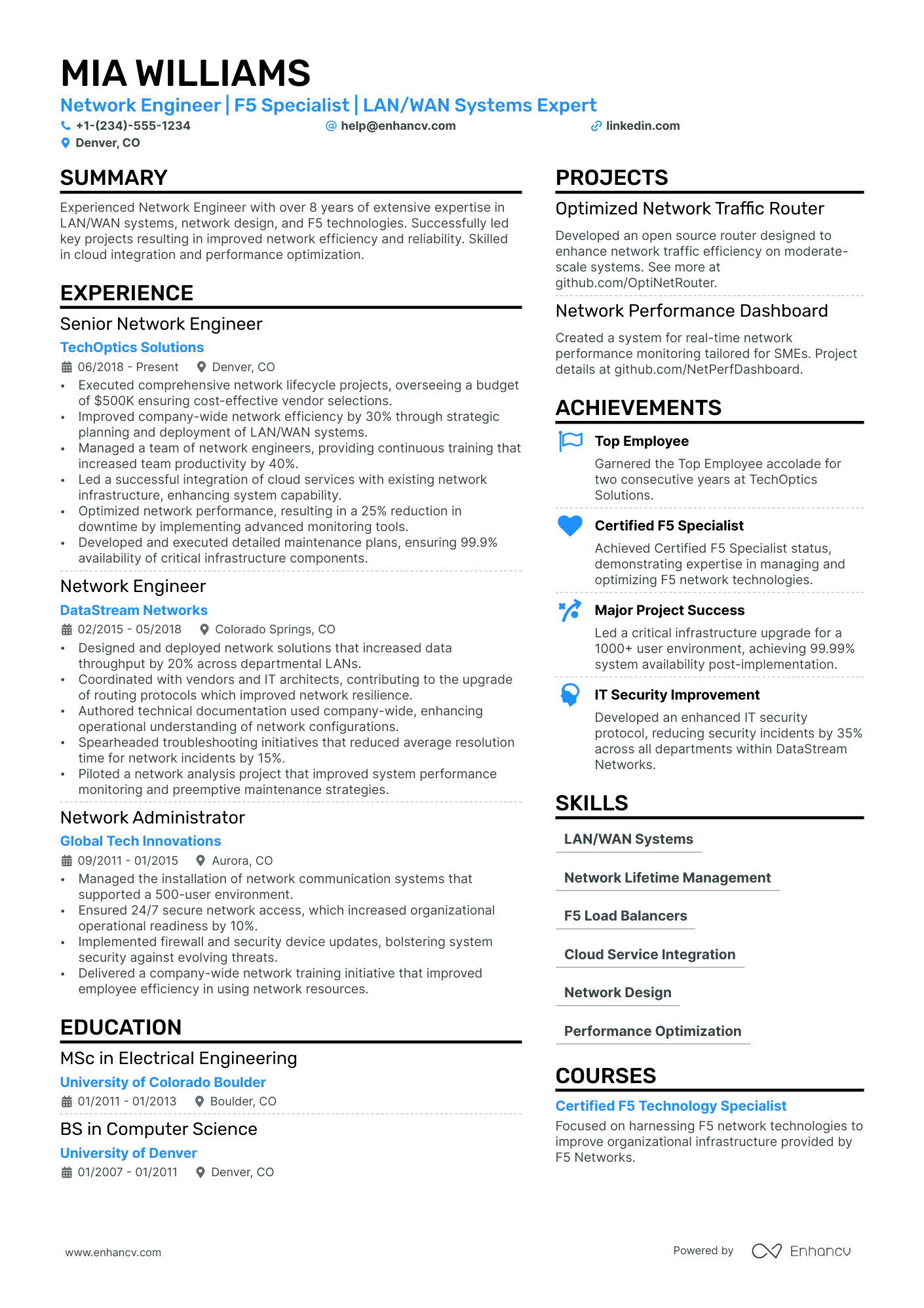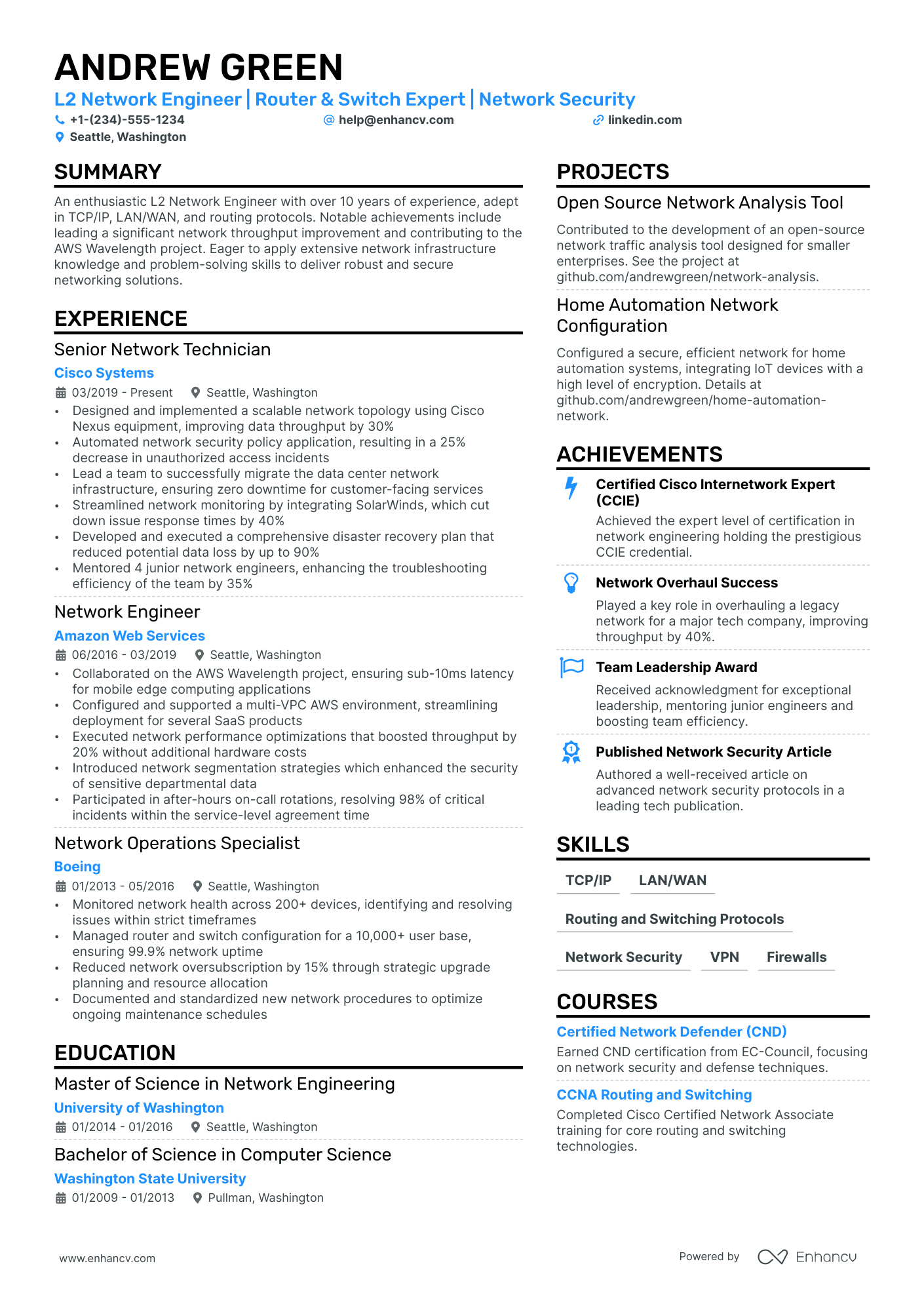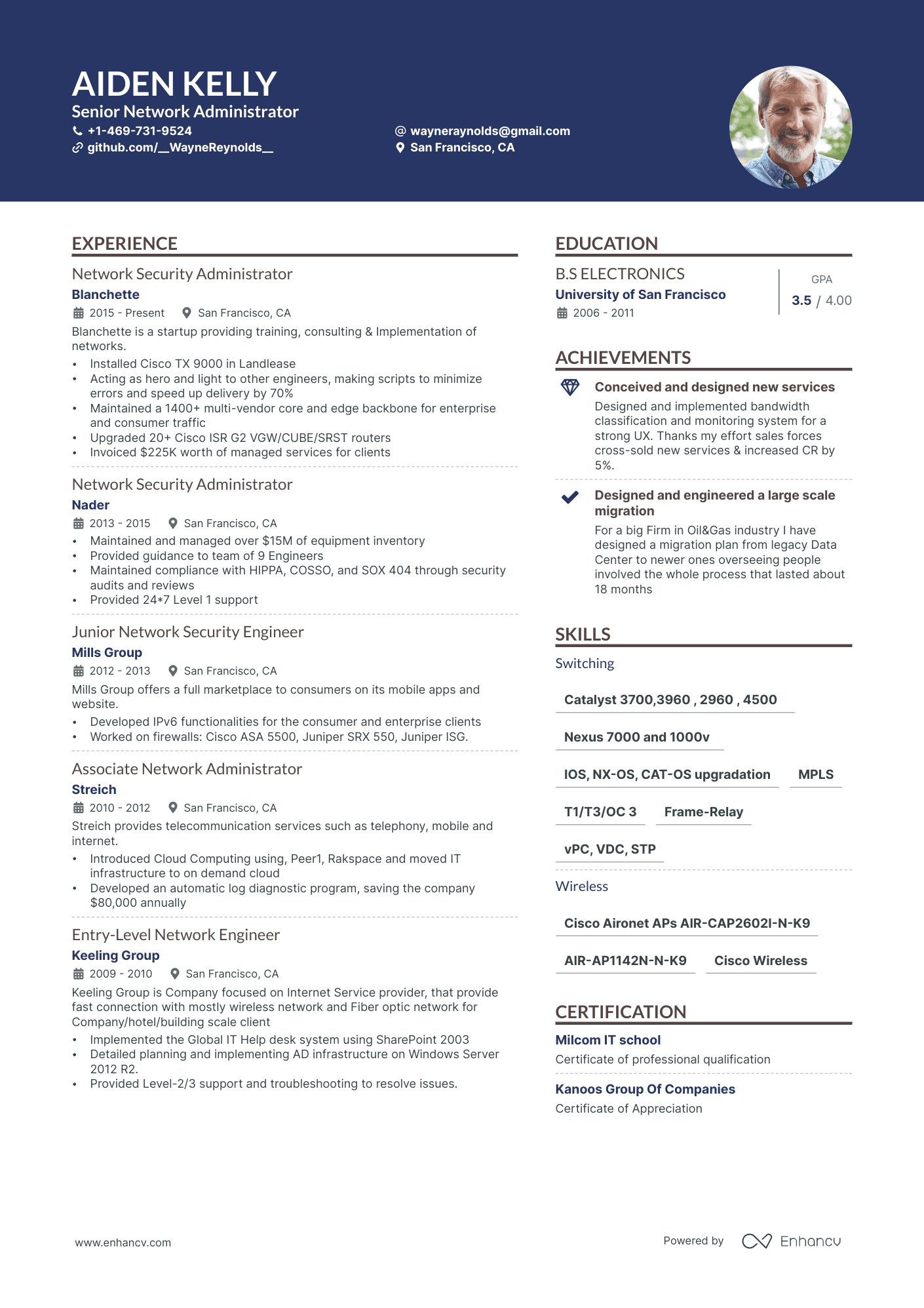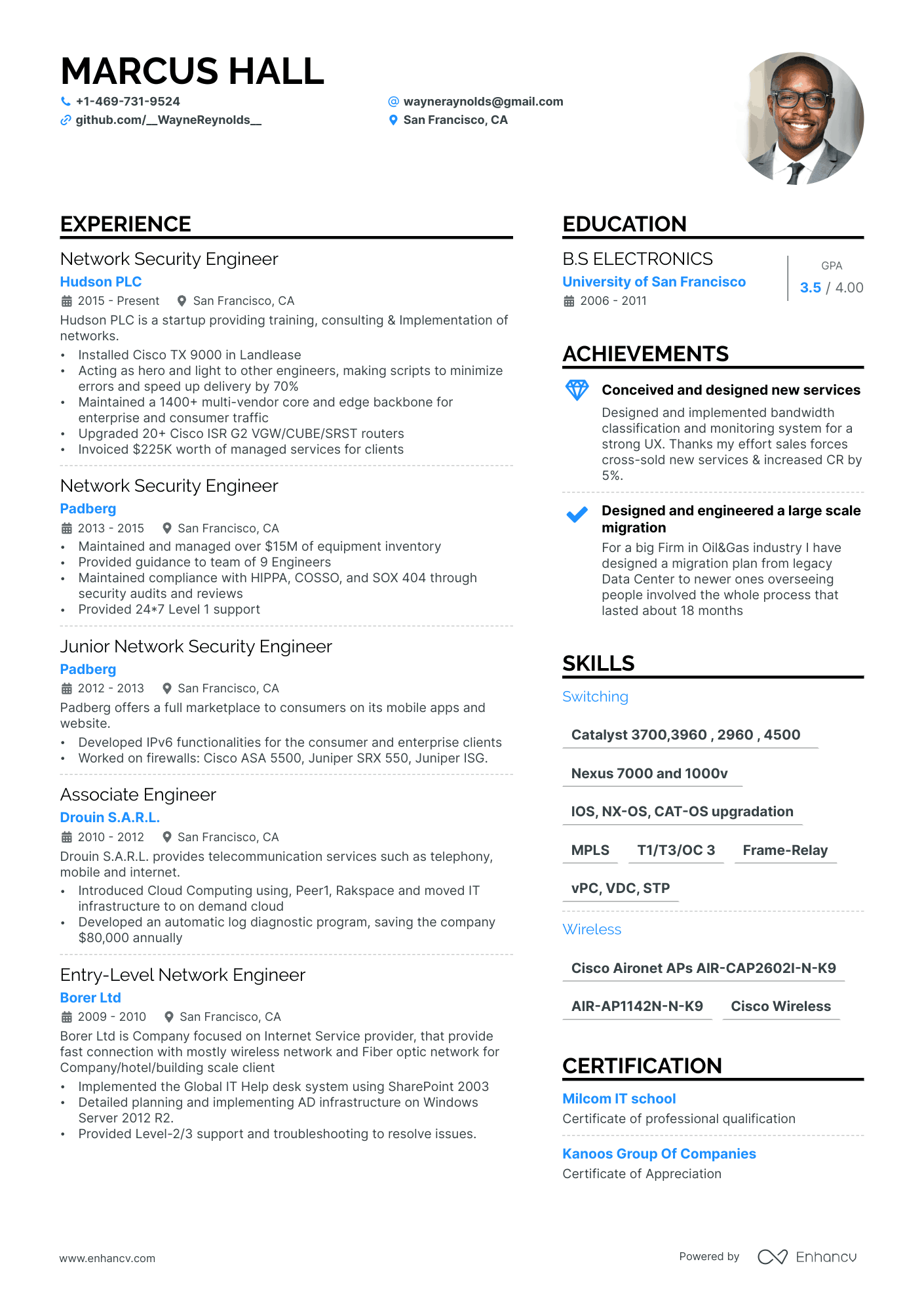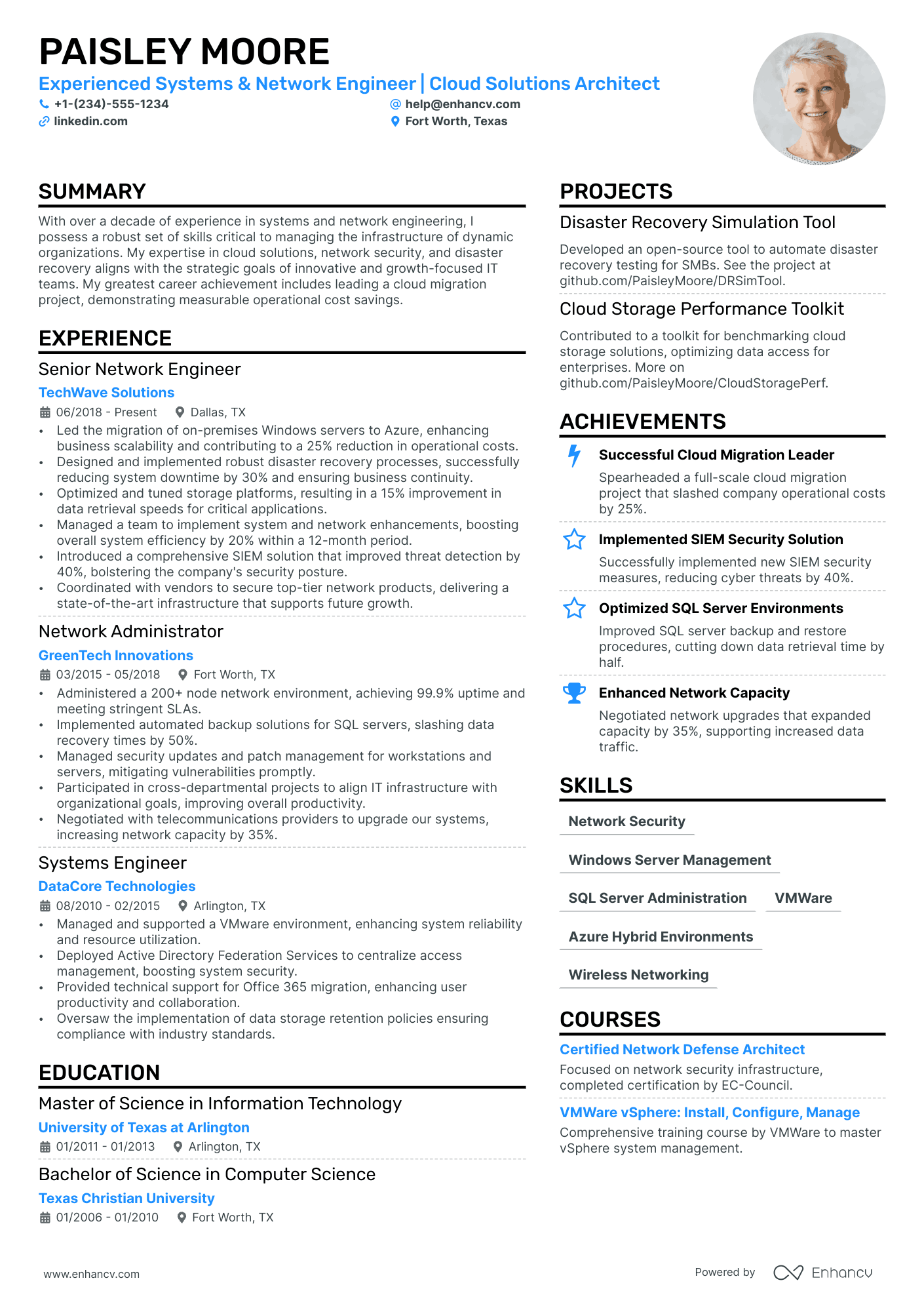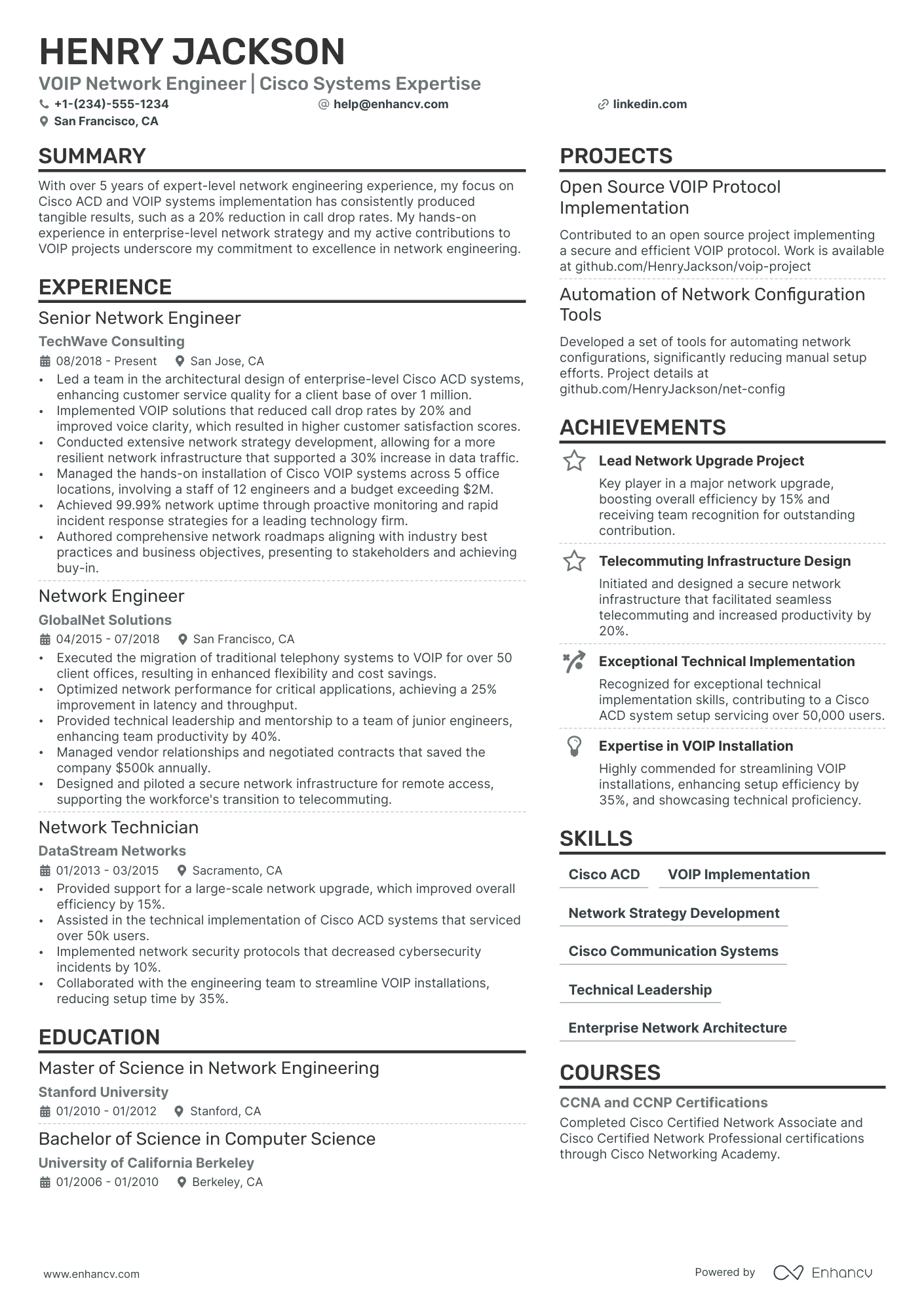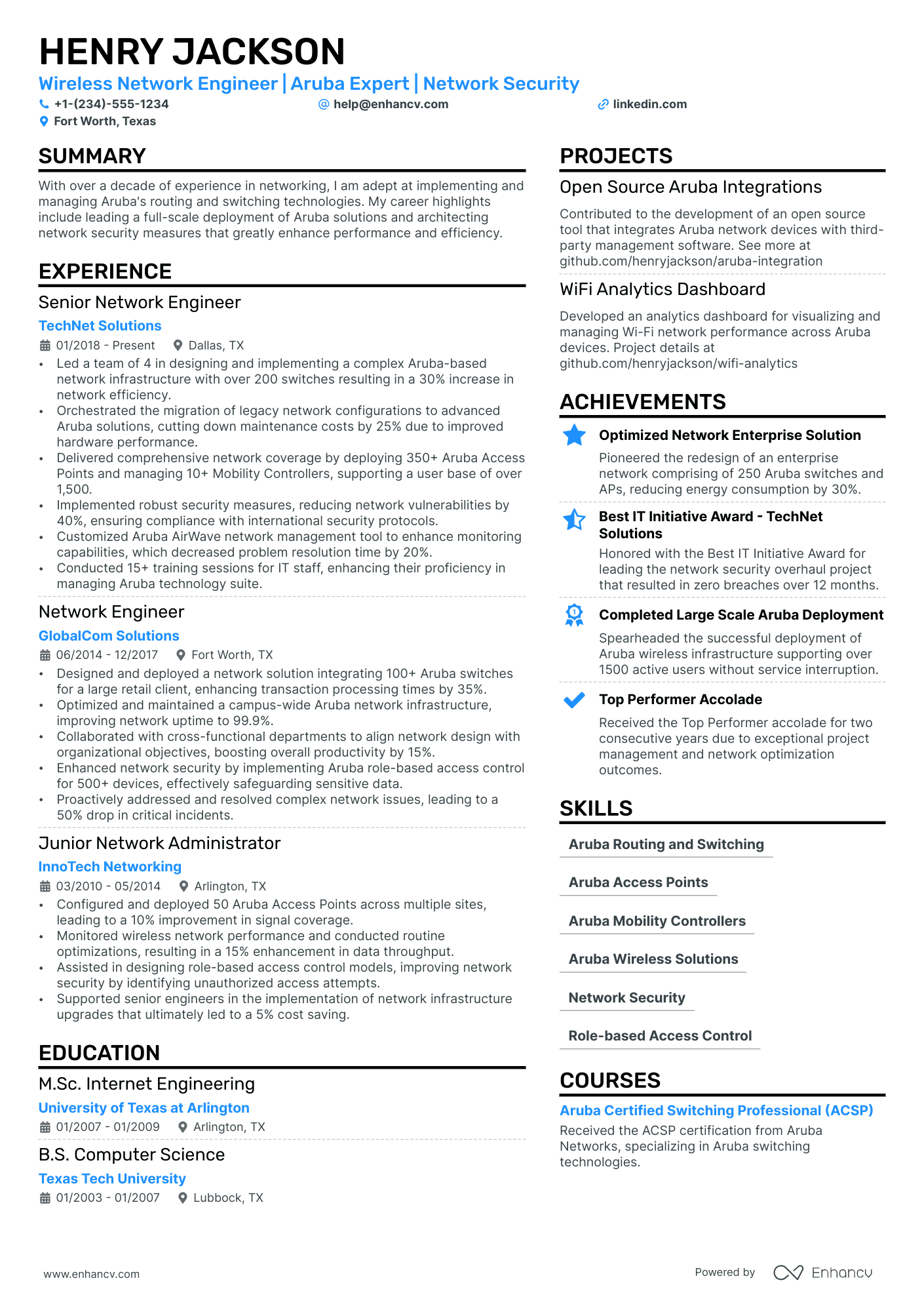You're all set for a new role as a network engineer, but there’s just one problem - no interview invitations so far. With all the experience, a real passion for networking, and every skill necessary, your qualifications are solid. Yet, your inbox remains surprisingly quiet.
If you're ticking all the right boxes in the job descriptions but aren't getting calls for interviews, your resume might be the issue. Even experienced network engineers with more than 5 years under their belt can struggle if their resumes don't catch the eye.
Unfortunately, it's not CTOs but recruiters who often see your resume first, and they might not understand the difference between firewalls and VPNs or recognize other technical details that demonstrate your expertise.
Not all recruiters are tech experts, so this guide is here to help you create a resume that any HR can easily understand.
Want to get that precious call? Here’s what to do:
- Choose a resume template that puts your expertise as a network engineer front and center.
- Identify the crucial sections of your resume and organize them for maximum impact.
- Demonstrate your experience with network engineering technologies.
- Detail your achievements and illustrate your impact on projects and the industry.
- Highlight key skills from the job description to meet the expectations of potential employers.
- Include your educational background, focusing on degrees or certifications relevant to network engineering.
Are you looking for more job openings in the network and security field? We’ve got just what you need. Browse through these resume examples.
- L2 Network Engineer Resume
- Cisco Network Engineer Resume
- Senior Network Engineer Resume
- Ccna Network Engineer Resume
- Cloud Network Engineer Resume
- Aws Network Engineer Resume
How to format a network engineer resume
Choosing the right resume format is crucial for standing out with your application as a network engineer. Here are three main formats you can consider:
- Reverse chronological resume: Ideal for those with extensive experience in network engineering, this format lists your previous jobs starting from the most recent and going backward.
- Functional resume: This format is best if you’re new to network engineering, changing careers, just starting out, or have gaps in your employment history. It emphasizes your skills rather than your past jobs.
- Hybrid resume: Merging the benefits of both chronological and functional formats, the hybrid resume allows you to highlight your most relevant skills and achievements at the top, followed by a concise work history. This is useful for showing experiences that align well with the network engineering position you're targeting.
To make your resume impressive to recruiters, follow these tips:
- Pick a modern resume template and avoid cluttered designs because they can look busy and distracting. Simple templates let your achievements shine without distractions.
- Choose readable fonts like Rubik, Lato, or Times New Roman, and keep the size between 10 and 12 points for readability.
- Keep your network engineer resume to one page if you're entry-level or mid-level, and extend it to two pages if you have lots of experience.
- Use consistent margins around 1 inch to ensure your resume looks neat and organized.
- Begin with a header that includes your name, job title, contact information, and links to your GitHub and LinkedIn profiles.
- Always save your network engineer resume as a PDF file to preserve the formatting across different devices.
As a network engineer, you should emphasize your strategic leadership and the impact of your projects on your resume. Tailoring it with appropriate keywords listed in the job ad will help it to pass through Applicant Tracking Systems, which many companies use to screen applicants.
Want to make sure your resume clears those ATS hurdles? Check out our AI resume checker. It evaluates your resume on 16 key points for free, helping you make it attractive to recruiters.
Is your resume good enough?
Drop your resume here or choose a file. PDF & DOCX only. Max 2MB file size.
Strengthen your application by including these important resume sections.
The top sections on a network engineer resume:
- Contact information: This is necessary to provide ways for potential employers to reach you for scheduling interviews or asking additional questions.
- Professional summary: Here you can show your most relevant skills, experience, and career goals that directly align with the network engineer position.
- Work experience: This section highlights your former roles, responsibilities, and achievements in network engineering, proving your professional competence.
- Technical skills: This is where you list specific technical abilities related to network engineering, such as proficiency with network protocols, hardware, and software.
- Certifications and education: Essential for your resume as it displays your academic and additional training qualifications, such as Cisco network certifications, that prove your expertise in the field.
These sections allow recruiters to assess your potential contributions to their organization.
What recruiters want to see on your resume:
- Proficiency in network protocols: This confirms that you understand different network communication protocols, allowing for effective data transmission.
- Knowledge of network hardware and software: Having this knowledge demonstrates your ability to set up, configure, manage and troubleshoot the physical and virtual aspects of the network.
- Experience with network security measures: This is important as it shows you're capable of protecting the company's data and network infrastructure from breaches.
- Relevant certifications: Certifications like Cisco's CCNA and CCNP show that you have been trained and tested in key areas of network engineering, which enhances credibility.
- Problem-solving skills: Being an effective problem solver suggests you can quickly and efficiently diagnose and repair network issues, reducing downtime.
Demonstrating your skills as a network engineer requires clear descriptions of your work experience. We'll go into more depth on this topic in the next section.
How to write your network engineer resume experience
The resume experience section is where you detail your accomplishments as a network engineer. For each job entry, highlight specific results and projects you’ve completed.
When you’re tailoring your resume, really dig into the job description. Look for specific skills or tools they’re asking for, like Cisco, Juniper, or network protocols you're familiar with, and then match those with your own experiences.
Think about times when you’ve solved problems or improved something. Those are the examples you want to put on your resume because they show you can handle the job and get results.
Hiring managers are looking for people who solve problems and make things better for the company and its customers. If you can show that’s what you do, you'll rise above the competition.
Let’s check out two examples of listing work experience on a resume. First, we’ll look at the WRONG way to do it.
- •Handled different network projects to support business objectives and technology updates.
- •Monitored and adjusted network systems to maintain performance standards.
- •Managed network security measures to protect data.
- •Used standard tools to oversee and optimize network operations.
Right now, your accomplishments aren't really catching the eye, since they seem routine. With entries like this, you're unlikely to get past the ATS filters. Check out the improved version below.
- •Handled over 20 network projects annually to align with strategic business objectives and facilitate technology updates, increasing overall efficiency by 15%.
- •Monitored and adjusted network systems across 5 locations, achieving a 99% uptime and consistently maintaining top performance standards.
- •Managed network security measures that reduced data breaches by 40% through rigorous implementation of advanced security protocols.
- •Used standard tools to manage and improve network operations, achieving a 20% faster response time and better bandwidth management.
Notice the use of action verbs like 'handled,' 'monitored,' and 'managed.' These verbs showcase the candidate's role in leading, solving problems, and overseeing important tasks.
This section stands out because it includes specific metrics such as a 15% increase in efficiency, a 99% uptime, a 40% reduction in data breaches, and a 20% improvement in system response times. These numbers clearly show the candidate's effectiveness and their ability to track and report their achievements.
Besides, the list mentions the candidate's use of industry-standard tools, highlighting their technical skills in network operations. This efficient use of language eliminates the need for a separate skills section, saving space on the resume and keeping the focus on proven results.
PRO TIP
Include specific numbers in your resume whenever appropriate to underline any excellent results you've achieved.
How to quantify impact on your resume
Here are some suggestions on how you can lay out your measurable successes:
- Detail the size of the networks you managed to demonstrate your ability to handle large-scale operations and maintain system integrity across extensive environments.
- Include how many network issues you resolved to show your knack for fixing problems, ensuring network stability and efficiency.
- State the percentage increase in network efficiency to present your role in boosting the speed of operations and indirectly accelerating productivity.
- Specify the cost reductions you achieved to indicate your skill in resource management and your effectiveness in cutting network management and setup expenses.
- Highlight the number of security vulnerabilities you identified and addressed to showcase your focus on network security and your contributions to protecting company data.
- List the number of upgrades or implementations you completed to show how you improved and updated the network system with new technologies.
- Mention the overall uptime of the networks you managed to let recruiters understand your efforts in maintaining an optimal network environment for operations.
- Specify the number of disaster recovery plans you implemented to underline your skill in preventing and handling network failures to maintain business operations.
PRO TIP
Don’t lie on your resume. It will probably be discovered during the interview, and that could cause your application to be rejected.
If you don't have much experience and are tempted to exaggerate on your resume, hold off. For anyone aiming to become a network engineer, make sure to check out the next section. It’s packed with helpful tips that’ll help you move your application forward honestly, without any fluff.
How do I write a network engineer resume with no experience
If you're just starting out as a network engineer, it's a good idea to work on personal projects to bolster your resume. Simple tasks like setting up small network configurations or tweaking router settings can serve as practical experiences. You can use resources from platforms like Stack Overflow and GitHub to learn more about network management.
In case you've worked on some projects, here's how you can include them in your resume:
- Frame your personal projects as freelance work or academic experience.
- Add any technical workshops or competitions you've attended, especially if you've gained any awards or certifications.
- Mention your experience in hackathons or relevant online communities, particularly those related to network engineering or IT infrastructure.
- Emphasize skills such as teamwork, problem-solving, and system management. Use examples from educational projects or previous employment to show how these skills translate to network engineering.
- Start your resume with a clear objective statement that expresses your interest in network engineering and highlights any related experience. Keep it brief—aim for 3-4 sentences.
All these pointers highlight your drive and competence, putting your resume on the fast track to the "interview" pile.
How to list your hard skills and soft skills on your resume
When tailoring the skills section of your network engineer resume, aim for clarity and impact. Include both your technical knowledge in network tools like Cisco and Juniper, and soft skills like analytical thinking and problem-solving. Emphasize your proficiency in relevant technologies, particularly network management software such as Cisco IOS, and Juniper Junos, or network monitoring tools like SolarWinds and Wireshark. Also, even a basic understanding of Python can be a valuable asset to your resume.
Best hard skills for your network engineer resume
- Cisco networking equipment
- Network architecture
- Routing protocols
- IPv4/IPv6
- Network security
- Linux
- Network automation
- Wi-Fi and LTE networks
- Load balancing
- Firewall administration
- Virtual Private Networks (VPNs)
- TCP/IP
- DNS/DHCP
- Cloud services (AWS, Azure)
- Network simulation tools
- OSPF (Open Shortest Path First)
- BGP (Border Gateway Protocol)
- Intrusion detection systems
- Ethernet and Fiber Optics
In addition to hard skills, make sure to also include some personal traits on your resume to demonstrate that you can work well with others and easily integrate into the company's environment.
Best soft skills for your network engineer resume
- Problem-solving
- Teamwork
- Time management
- Communication
- Flexibility
- Patience
- Critical thinking
- Leadership
- Initiative
- Stress management
- Negotiation
- Multitasking
- Persistence
- Attention to detail
- Planning
- Learning agility
- Decision making
- Motivation
- Analytical thinking
According to Linkedin data, employees who possess both hard and soft skills tend to get promoted 8% faster than those who only have hard skills. This trend is even more pronounced among professionals in the tech industry.
How to list your education and certifications on your resume
The education section of your resume is crucial for validating your qualifications and readiness for the role of a network engineer. Be sure to underscore any degrees in computer science, network engineering, or related fields, as well as any relevant certifications such as Cisco Certified Network Associate (CCNA), Cisco Certified Network Professional (CCNP) or CompTIA Network+.
This section demonstrates your formal training and adherence to industry standards, making you a credible candidate for potential employers.
Remember, when listing education, you should place it near the top of your resume if you're relatively new to the field. For those with extensive professional experience, the education section can follow the work experience section. Here’s how to structure and show your academic background:
- Institution name: Begin with the university or college where you studied.
- Institution location: Note the city and state of the institution.
- Degree and field of study: Specify the degree you obtained and your field of study.
- Date of graduation: State your graduation date or, if still studying, your expected graduation.
- Relevant courses and honors: Mention any courses related to network engineering and any honors like cum laude that may support your application.
- GPA: List your Grade Point Average if it's above 3.5 to underline your academic success.
- Professional certifications: List any relevant certifications, focusing on those pertinent to network engineering.
Here's how to organize this section of your resume.
- •Specialized in advanced networking technologies and network security.
- •Completed a thesis on optimizing network infrastructure through AI-driven solutions.
- •Focused on network architecture, data communications, and systems management.
- •Worked on several projects utilizing Cisco routers and switches for network setup and configuration.
Obtaining advanced certifications underlines your expertise and proactive approach to navigating today's technology challenges. Adding your certifications to your resume is straightforward. Here’s how you should do it:
- List the certifications you've earned.
- Provide the names of the institutions that issued them.
- If applicable, indicate the expiration dates of each certification.
Here are the top 5 certifications for network engineers to include on a resume:
Best certifications for your network engineer resume
How to write your network engineer resume summary or objective
Starting off your network engineer resume with a personal statement, like a summary or objective, is a great way to grab attention. It’s your chance to introduce your skills, experience, and career goals, making a strong first impression right off the bat.
Personal statements are vital, especially if you have a diverse educational background or a wide range of experiences. They help clarify how your skills and experiences make you a great fit for the job you’re applying for.
Here’s the difference between them:
- A resume summary focuses on your past job experiences and how they prepare you for the job at hand.
- An objective statement, on the other hand, talks about your career goals and how they align with the job you want.
For entry-level network engineers, an objective is a good choice because you might not have much experience yet. Here’s how to create one:
- Tailor it to the job description, using specific keywords and skills mentioned there.
- Express your eagerness to learn and grow in the field.
- Use action verbs to keep things lively.
- Keep it concise—about 3 sentences should do.
If you’ve got a lot of experience, go for a summary. Here’s the best way to do it:
- Underscore skills and experiences that match what the job needs.
- Use keywords from the job description to make your summary resonate.
- Talk about past achievements in your roles and try to quantify them if you can.
- Keep your sentences action-oriented.
- Aim for a brief but powerful summary, about 3-5 sentences.
Tailoring your resume summary to fit each job application may be time-consuming, but makes a huge difference, so we advise you to do it.
Now, take a look at this example of a network engineer resume summary:
You see words like "solid background," "history," and "experienced" popping up? They pretty much mean the same thing, right? It would be wise to use that space for more significant details that can truly capture a recruiter’s interest. Look at the example below:
Now hiring managers know that you:
- Bring over 7 years of experience in networking, security, and server management.
- Have mentored more than 50 new engineers, showing strong leadership skills.
- Have tackled and solved thousands of tough technical issues.
- Find innovative ways to solve complex business problems.
- Are ambitious and looking to step up into a senior role at Meta.
Additional sections for a network engineer resume
Besides the must-have parts on your resume, consider adding additional sections to show your unique personality and human side. Here are a few ideas that could be useful:
- Awards and achievements: Showcase any notable awards or recognitions you’ve received, like Best Network Implementation in a company-wide project or recognition for outstanding problem resolution. Make sure the awards are relevant and verifiable.
- Passions: Including a section on your hobbies and interests outside of work can make you seem more well-rounded. Whether it’s blogging about technologies, participating in hackathons, or even non-tech activities like biking or swimming, sharing your passions shows you have a balanced lifestyle.
- Languages: Fluency in multiple languages can be a significant advantage in today’s global workforce, particularly in a multinational corporation, setting you apart from other candidates.
- Volunteering: Adding any volunteer work to your resume, especially if it's related to technology or community service, showcases your dedication and readiness to apply your skills outside of paid roles.
How to put a Projects section on a network engineer resume
Usually, recruiters or even CTOs prefer to see your work firsthand. They need to assess if your approach to network engineering and your technical knowledge is a good fit with their ongoing projects. To properly feature your project:
- State the project’s name and the location where it was conducted.
- Provide a concise summary of the project’s objective and the problem it addressed.
- Specify the dates you were involved.
- Emphasize a key outcome or advantage derived from your project.
- If available, include a link to view your project online.
- •Spearheaded the optimization of WAN, enhancing network connectivity and performance across regional offices by 35%.
- •Designed and deployed scalable network infrastructures tailored for startup ecosystems, resulting in a 50% increase in data handling efficiency.
For a network engineer's resume, the Projects section is a great place to show off what you can do. Just remember to pick your best projects that are really relevant to the job you're going for—this keeps things focused and prevents boring the recruiters. Also, before you put any proprietary work on there, make sure you've got the green light to share it. This way, you look professional and ready to go!
Key takeaways
Building a great network engineer resume is kind of like optimizing a network. It’s all about the right connections and configurations. Just keep these easy tips in mind, and you'll do just fine.
- Pick a resume format that highlights your experience, like a reverse chronological layout for those with a lot of experience, or a hybrid format if you have less experience or gaps in your work history.
- Make sure your resume is ATS-friendly with standard fonts and formatting and without complex elements that could cause scanning errors.
- List your achievements using specific numbers, like how much you increased efficiency or decreased downtime.
- Include important technical and soft skills from the job description to match what employers are looking for.
- Display your educational achievements and any relevant certifications like CCNA or CCNP.
- Include sections for awards, languages, or volunteering to show a well-rounded skill set.
Network Engineer resume examples
Explore additional network engineer resume samples and guides and see what works for your level of experience or role.
By Experience
Senior Network Engineer
Junior Network Engineer
Entry-Level Network Engineer
By Role
